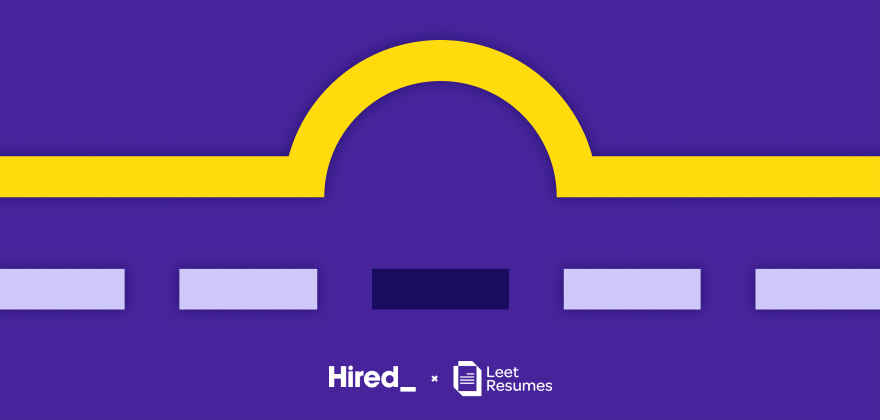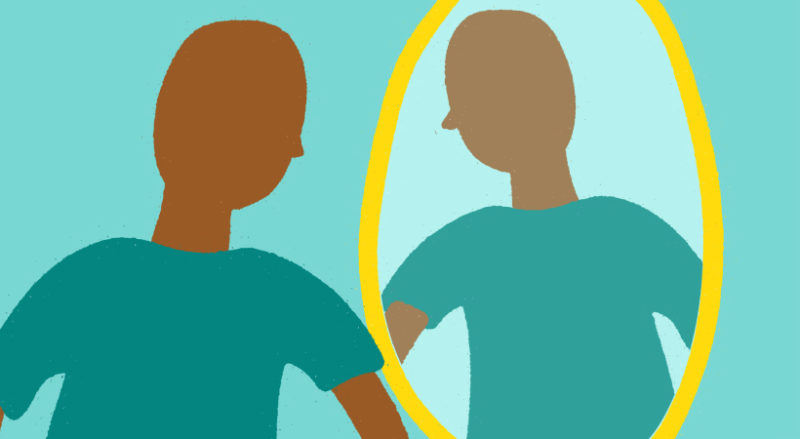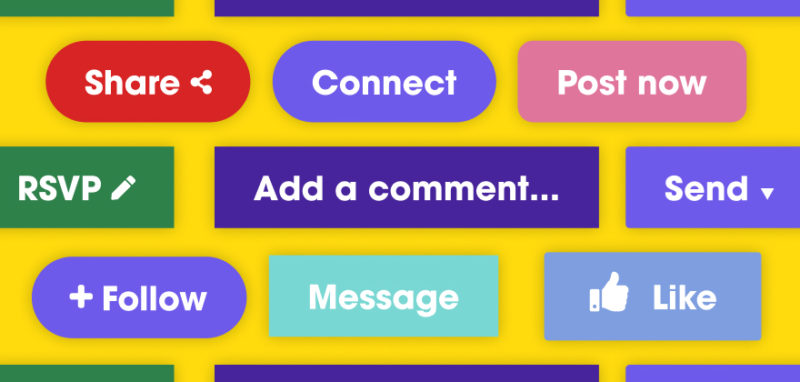
How to Handle an Employment Gap on Your Resume (Flip the Script!)
Addressing an employment gap on a resume is one of the most common worries keeping job seekers up at night. It’s been drilled into our heads that if you’re not working, you’re wasting away.
There’s a prevailing, persistent belief out there that if a hiring manager or recruiter sees even a small gap on a resume they’ll automatically assume the applicant is a slacker who can’t hold down a job.
This simply isn’t true. Consider these recent stats from a 2021 LinkedIn survey: Just under four in five hiring managers (79%) say they would have no issues hiring a candidate with a gap in their resume.
The relationship between “job hopping” and DEI“Considering ‘job-hoppers’ for roles is a DEI practice many employers may not realize. In many cases, ‘job-hoppers’ have had more barriers than others in the workforce.” This could mean many things, including health challenges, economic hardships, caregiving responsibilities, or transportation issues.
“To be frank,” being a serial “job-hopper” is one of the things I credit to my career success. My skills are varied, my familiarity with different industries is comprehensive, and my understanding of organizational culture is robust.”
Brittany King, Senior Manager, TA-Talent Intelligence & Diversity, and a member of Sista Circle: Black Women in Tech.
Employment gap a deal breaker? Not anymoreNot having a job for a year or longer may have been considered a deal breaker by most decision makers just 10 years ago or so, but the narrative surrounding career gaps has changed considerably since.
You can probably guess the biggest reason why: COVID-19. The pandemic sparked an absolute tidal wave of layoffs, furloughs, and self-imposed sabbaticals to care for loved ones.
In light of everything that’s happened over the past few years, it doesn’t make business or ethical sense to discriminate against otherwise attractive job candidates due to a career break anymore (self-imposed or otherwise).
That being said, you still absolutely have to touch on and explain your resume gaps. Here’s what Allison Rutledge-Parisi, senior vice president of People at Justworks, recently told Protocol:
“I sense in the atmosphere a change from the days earlier in my career. If you see a gap on a resume, it’s no longer a red flag at all. It’s an area of inquiry. But the inquiry is not assessing if it’s OK or not. The inquiry is more like, ‘Wow, what did you do?’”
Give me a break!On a day to day basis, the average working professional has little time to consider the bigger picture of their career. When we’re preoccupied with what our current job needs from us on a particular day, it can be all too easy to forget about what we truly want from our careers.
Another LinkedIn survey from earlier this year reports 69% of people say taking a career break helped them gain a new perspective and outlook on what they really want from life.
Even more revealing: That same survey tells us that just under half of hiring managers (48%) believe most candidates are too negative about their job gaps, undervaluing themselves in the process. Meanwhile, 64% of job seekers wish there were a better way to broach the subject of career gaps on resumes and during interviews.
What does all of this tell us? Both employers and applicants are ready to put to bed the outdated notion that one must hold down a steady job from the moment they finish school to the time they retire.
Yes, your resume is about your career in your chosen field, but to a greater extent it’s about you. Your story isn’t limited to periods of employment. Here are a few ways to flip the script on career breaks, and use gaps in your resume to your advantage.
There is no success without adversityAt Leet Resumes, we always encourage resume writers to emphasize their career wins and accomplishments. Showcasing successes sends a clear message to readers: “I’m good at what I do, and I’m ready for my next career challenge.”
Well, what’s a success story without a little adversity to overcome? One research project published in the scientific journal Basic and Applied Social Psychology investigated what hiring managers want to hear from applicants during interviews. While achievements are great, the study found interviewers really wanted to hear about the setbacks and problems interviewees encountered on their way to those successes.
Gaps in your work history can serve this adversarial role on your resume. Yes, taking a break from work for whatever reason isn’t ideal. But, if you frame these gaps in the right light, using the right verbiage, they may work in your favor by showcasing your resilience and commitment.
Not working doesn’t mean not growingYou may be wondering how exactly to frame unemployment as a positive, especially on paper. The simple answer comes down to staying busy. You need to address the time period you weren’t working in some other way on your resume.
The best way to do this is via some type of institutional connection. Maybe you went back to school, or completed a new certification in your field. Volunteering for non-profit work, especially for a good cause, is another great way to show readers that you may not have been working – but you were still learning, growing, and pushing forward.
Consulting roles, attending industry conferences and virtual events, and even part-time or one-off freelancing gigs, can work too.
The biggest mistake you can make with an employment gap
The #1 mistake to avoid here is leaving a year+ long gap on your resume totally unaddressed. Doing so virtually guarantees recruiters and hiring managers alike will assume you spent your time off moving exclusively from the couch to the kitchen.
Avoid lengthy explanations about an employment gapIf we put COVID-19 aside for a moment, the three most common reasons people usually take an extended sabbatical from full-time work are:
- semi-retirement (taking a year off for travel, etc),
- they were fired, or
- electing to stay home as a full-time parent or caregiver.
It’s likely that many who fall into one of those three categories did not maintain any type of formal institutional connection during their employment gap years. If this is your situation, don’t waste much room on your resume explaining the finer details of your story.
At Leet Resumes, we believe brevity is best across all aspects of resume writing. Even when describing your biggest career wins it’s best to keep things short and sweet. This applies even more so when addressing gaps in work history.
Instead, go with a single sentence addressing the time period in question with a positive spin toward the future.
If you’ve spent the past couple years caring for your family, write something like:
“Stay at home parent, family of five, excited to re-enter the workforce. 2020-2022”
You can keep it even more vague:
“Energized to return to work after a period of personal growth. 2020-2022”
You’ll have an opportunity to better explain your work gaps during the interviewing process. For now, there’s no reason to take up any more valuable space on your resume than needed.
Never adopt an apologetic tone about your employment gapIt’s important to be transparent about your career breaks, but that doesn’t mean you should be apologetic. Again, the hiring handbook from a decade ago just doesn’t apply anymore.
Remember the statistic stating 48% of hiring managers believe candidates are too down on themselves over career lulls? If you frame your work gaps as a failure warranting an apology, or immediately sulk when the topic is brought up in an interview, it sends the wrong message.
“Do not apologize for doing what you need to do for your professional and personal growth. Taking time off for whatever reason is sometimes necessary. Be confident in your decision to take time off and be prepared to be confident in your answer to why you did it.”
Lexi B, Founder of Sista Circle: Black Women in Tech.
Not all periods of unemployment are our own choice, but you always control the greater narrative of your story. Even if you were unceremoniously fired, turn it into motivation. Use it to propel you forward, not a hindrance holding you back.
That was then, this is nowDecision makers are no doubt more open to considering candidates with gaps in their work history nowadays, but they’ll still need to know that you’re serious about seeking employment.
Be sure to make it clear that today – in the here and now – you’re absolutely chomping at the bit to pick up where you left off and never look back. No employer wants to hire a new worker only to have them disappear shortly thereafter. It’s essential to frame your employment gaps as temporary siestas.
Ideally, the message is you made meaningful use of your time off and you’re ready to return as an even better professional version of yourself.
You’re not just your careerAs we wrap this article up, it may be useful to touch on resumes in general for a moment. Most people tend to think of their resume as a mere description of their careers, but that’s a gross oversimplification.
“A resume is an art and not a science. As a recruiter I want to get a glimpse of the impact you’ve been able to accomplish and what you’re passionate about. The gaps in your experience are less important to me than the story I’m being told in your resume.”
Amal S., Fellowship Recruiter @ Formation
When recruiters sit down to read your resume, they want to learn about you as a person – not just every job you’ve held since college. If you get the job, it’ll be you reporting for duty on Monday morning, not your resume.
Addressing an employment gap the right way, and showing you didn’t let a bump in the road derail your journey, will speak to your character and persistence far more than any boring old corporate achievement.
Need some help with your career?Feeling like you could use some assistance with your job search?
Consider creating a free profile on Hired and have companies apply to interview you for tech or customer-facing roles!
Related:
Hired partner Leet Resumes helps jobseekers revise their resumes for free.
Hired partner Sista Circle: Black Women in Tech (BWiT) is a solidarity group dedicated to supporting Black Women in technology, including providing community and networking.
Related blog posts

Build Confidence and Take Control of Your Tech Job Search Series
The process of finding a job often feels overwhelming. It’s difficult to determine the best avenue...

How to Answer “Tell Me About Yourself” Interview Question for Tech Talent
How to ace the number one question in interviews for tech roles, like software engineers –...

How to Negotiate Your Job Offer
So, you received an offer — congratulations! Now, you might be wondering, Can I negotiate it? Yes,...

Interested in a Sales or Customer-Facing Role? Here’s your Resume Guide
Ready to Land your Dream Job? Kick off your Job Search with the Right Sales Resume Like many...

Job Searching? Online Networking Strategies to Get you Started
How to Build Relationships and Grow Your Network Embracing our digital realm of human...

Video Interviews 101: How To Impress In The Digital Age
12 Easy Steps to Boost Job Interview Success You passed your phone screen with flying colors....

